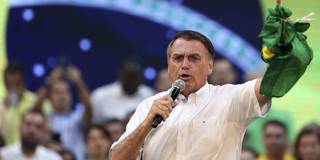
Understanding Brazil’s Insurrection
The insurrection in Brazil's capital shows what can happen when democracy is understood merely as a process, rather than as a core value. While Brazilian democracy is not immediately at risk, its long-term future now depends on how its warring political camps navigate the fallout of January 8.
SÃO PAULO – The January 8 insurrection in Brazil’s capital was driven by a mix of factors. Participants’ delirium, passion, obstinacy, and resentment, as well as their lack of education and political literacy, all played a part. While none of these factors justifies what happened, they can help us understand why it happened.